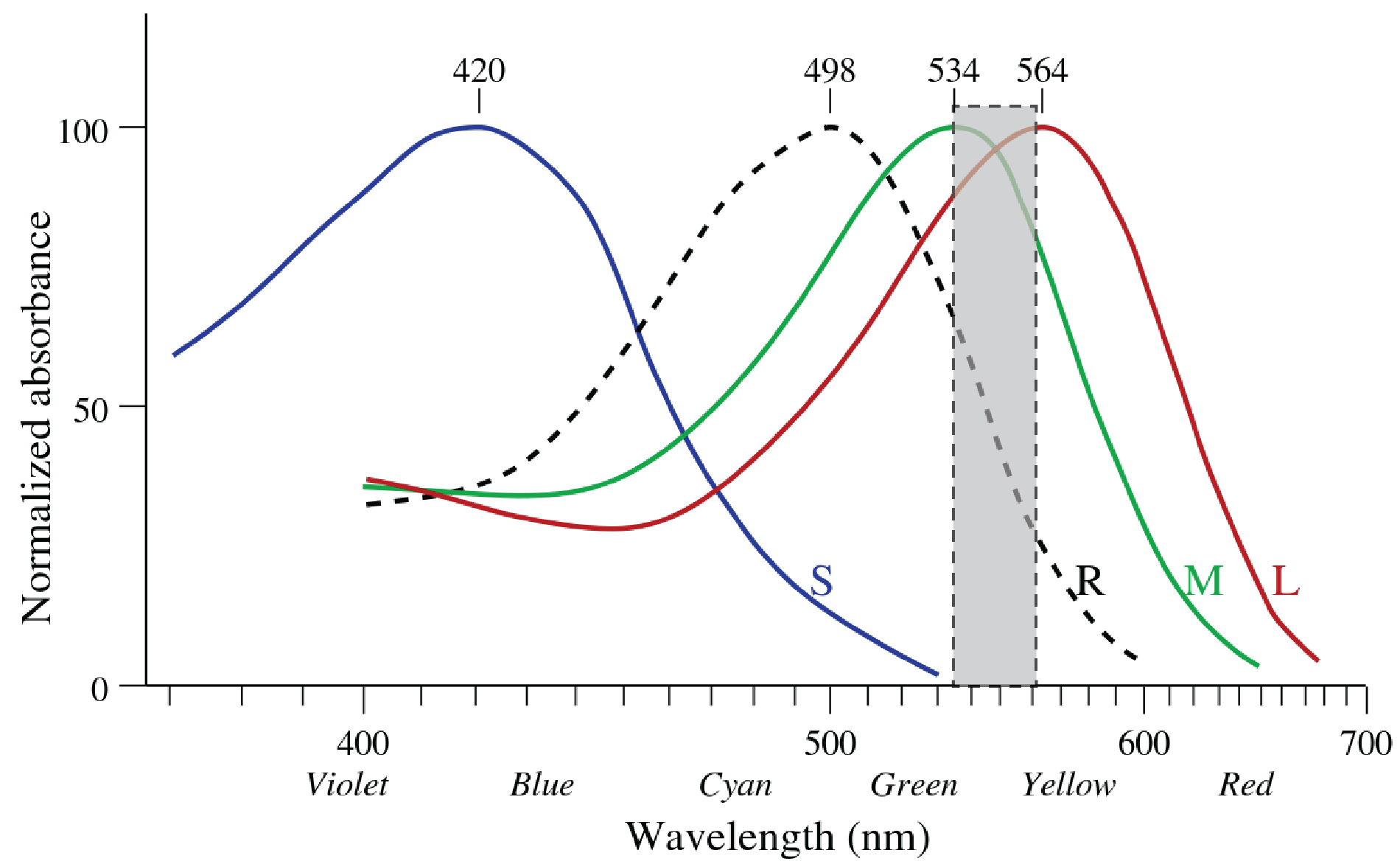How Enchroma Glasses Work
Have you heard of Enchroma glasses? Based on the viral video, it looks like they can “fix” colour blindness! Although they can’t actually do this, here’s how they work.
Colour blindness does not mean someone sees the world in black/white or grayscale. People with colour deficiency do see colours, but because of a change in their photoreceptors of the retina, certain wavelengths look very similar. There are different kinds of colour deficiency, but for example, a person might find it hard to distinguish between reds, browns, and greens. The glasses help by filtering out the wavelengths with the most overlap, which cause the most confusion (see pic below). As a result, this allows people to see a bigger distinction between colours, and everything looks more vibrant. They can see shades they’ve never seen before, which were previously muddled together in the zone of overlap. It’s hard to imagine what it must feel like to put these on, but it brings on some very interesting questions about colour and how we perceive colour! 🤩
Here’s a much more in-depth explanation: What is color? Enchroma glasses, neuroscience, and the mystery of color







